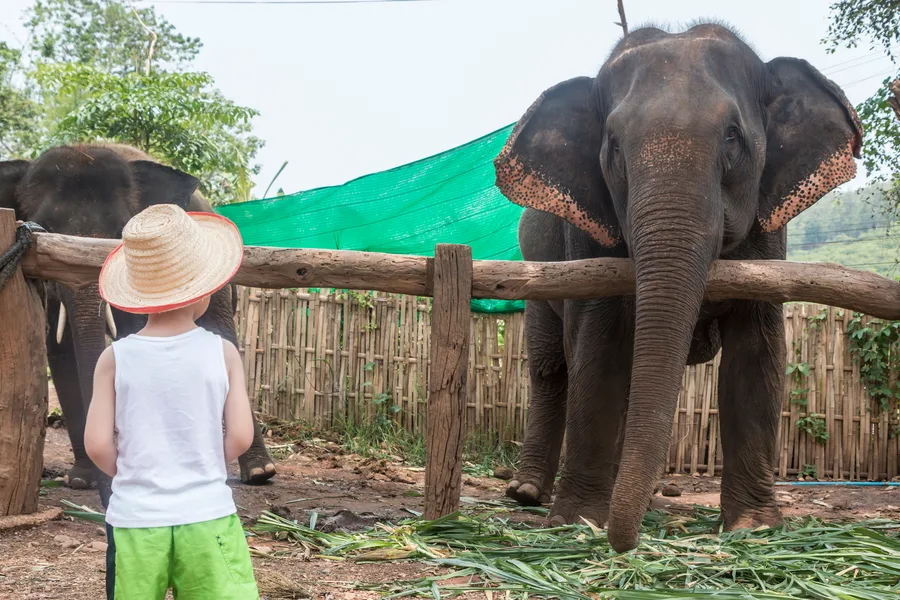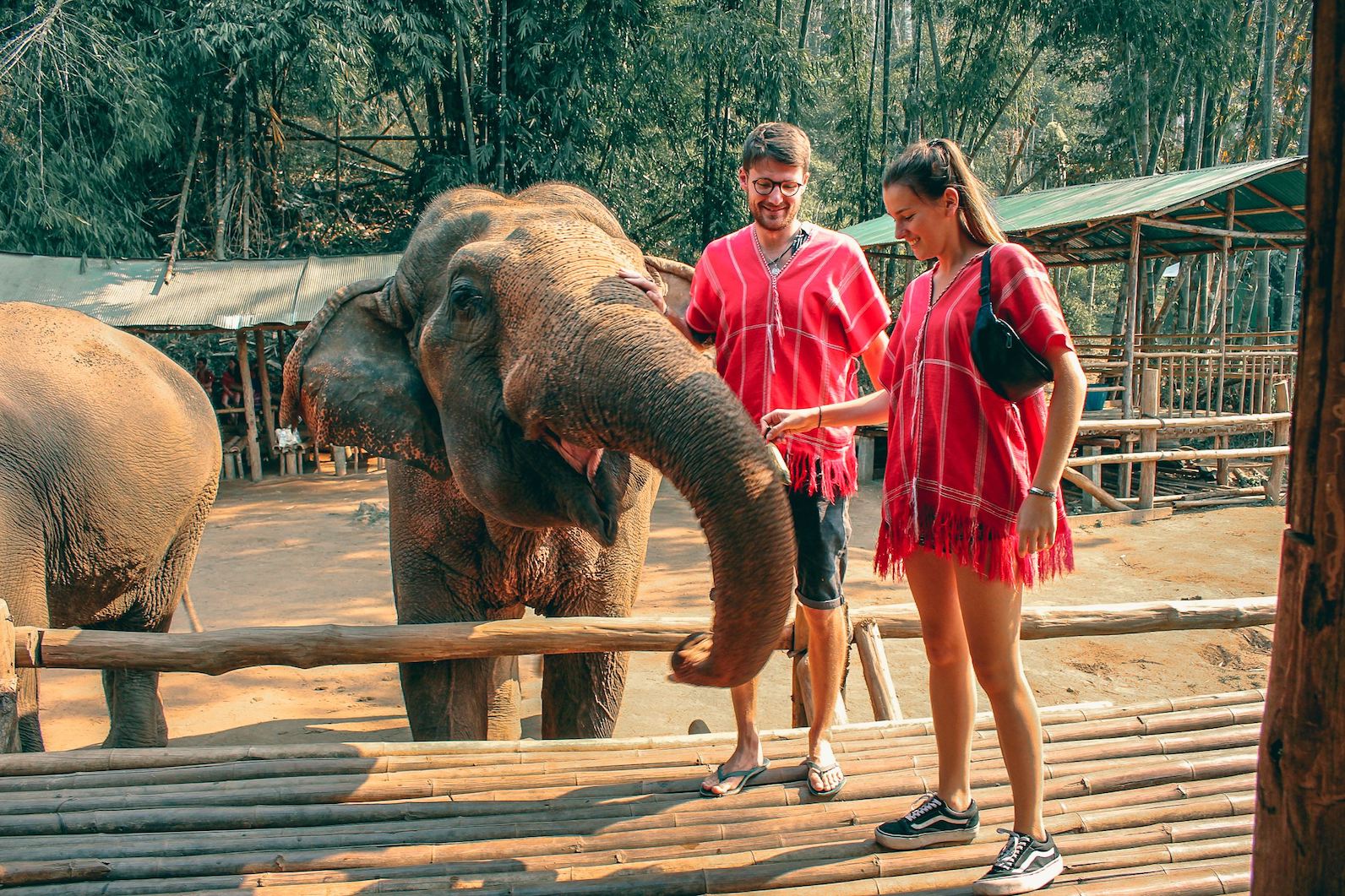
Phuket, a tropical paradise known for its stunning beaches and vibrant culture, is increasingly becoming a destination for ethical wildlife tourism, a heartwarming exploration of the Phuket Elephant Sanctuary, where ethical tourism takes center stage. This sanctuary, nestled in the lush beauty of Phuket, beckons travelers into a realm of responsible wildlife encounters. Here, the emphasis is on observing majestic elephants in a natural and stress-free environment, fostering rehabilitation and conservation. Delve into the sanctuary's commitment to education, community engagement, and sustainable tourism practices, creating a holistic experience for both visitors and resident elephants. From heartwarming stories of rehabilitation success to immersive encounters that prioritize the welfare of these gentle giants, the Phuket Elephant Sanctuary is a testament to the transformative power of ethical tourism in preserving the natural harmony between humans and elephants.
Everything you need to know about the Phuket elephant sanctuary :
Phuket Elephant Sanctuary Overview: The Phuket Elephant Sanctuary is a renowned ethical elephant sanctuary located on the tropical island of Phuket in Thailand. Established with a commitment to providing a humane and natural environment for elephants, the sanctuary focuses on rescue, rehabilitation, and conservation efforts.
Mission and Values: The sanctuary is dedicated to promoting responsible tourism, wildlife conservation, and the well-being of elephants. Its mission involves rescuing elephants from exploitative situations, such as logging, tourism, or street begging, and offering them a chance to live freely in a natural habitat.
Elephant Experience: Visitors to the Phuket Elephant Sanctuary can expect a unique and educational experience. Instead of traditional elephant rides, the emphasis is on observing elephants in a setting that mirrors their natural behavior. Guided tours allow visitors to learn about the elephants' individual stories, behavior, and the challenges they may have faced.

Conservation Initiatives: The sanctuary actively engages in conservation efforts, both on-site and within the broader community. This includes protecting the natural habitat of elephants and collaborating with local communities to promote environmental awareness and sustainability.

Educational Programs: Phuket Elephant Sanctuary places a strong emphasis on education. Visitors have the opportunity to learn about the elephants, their history, and the importance of ethical treatment in wildlife tourism. Educational programs aim to raise awareness about the challenges faced by elephants in various industries.
Responsible Tourism Practices: The sanctuary is committed to responsible and sustainable tourism. This involves practices that prioritize the well-being of elephants, minimize environmental impact, and contribute positively to the local community. Visitors are encouraged to adhere to guidelines that ensure a respectful and ethical experience.
Resident Elephants: The sanctuary is home to elephants that have been rescued from various situations, including the logging and tourism industries. Each resident has a unique background and story, and the sanctuary provides a safe and nurturing environment for their rehabilitation.
Visitor Testimonials: Many visitors share positive experiences, emphasizing the emotional connection and satisfaction gained from supporting ethical practices. Testimonials often highlight the sanctuary's role in offering a meaningful and educational encounter with elephants.
Book Elephant Sanctuaries in Thailand
FAQs
1. How does the sanctuary contribute to elephant conservation?
A. The sanctuary actively contributes to elephant conservation by rescuing elephants from various industries, promoting responsible tourism practices, and engaging in conservation initiatives that protect the natural habitat of elephants.
2. Can visitors ride elephants at the Phuket Elephant Sanctuary?
A. No, the sanctuary promotes responsible tourism practices, and elephant riding is not allowed. The focus is on observing elephants in a natural setting to ensure their well-being and minimize stress.
3. What experiences can visitors expect at the Phuket Elephant Sanctuary?
A. Visitors can expect guided tours that provide insights into the lives of the resident elephants. The sanctuary offers educational programs, allowing visitors to learn about the individual stories of the elephants and the challenges they may have faced.
4. Are there specific guidelines for interacting with elephants at the sanctuary?
A. Yes, the sanctuary has guidelines to ensure the well-being of both visitors and elephants. These guidelines include maintaining a respectful distance, avoiding loud noises, and following the instructions of trained guides.
5. How can I support the Phuket Elephant Sanctuary's mission?
A. Visitors can support the sanctuary's mission by participating in guided tours, making donations, and spreading awareness about responsible elephant tourism. Purchasing ethical merchandise also contributes to the sanctuary's conservation efforts.
6. Are there age restrictions for visitors to the Phuket Elephant Sanctuary?
A. The sanctuary may have age restrictions for certain activities to ensure the safety of both visitors and elephants. It's advisable to check with the sanctuary regarding age-related guidelines.
7. Can I volunteer at the Phuket Elephant Sanctuary?
A. The sanctuary may offer volunteer opportunities. Interested individuals should contact the sanctuary directly for information on volunteering, including requirements and availability.








